How AI is Revolutionizing Sales: Tools, Benefits, and Strategies for 2025
In today's fast-evolving business landscape, artificial intelligence (AI) is revolutionizing how sales teams operate, driving efficiency and boosting results. From advanced tools that streamline workflows to cutting-edge strategies that enhance customer engagement, AI is reshaping sales processes for a competitive edge. Discover the key benefits, top tools, and actionable strategies that will define sales success in 2025—and learn how to stay ahead in this AI-powered era.
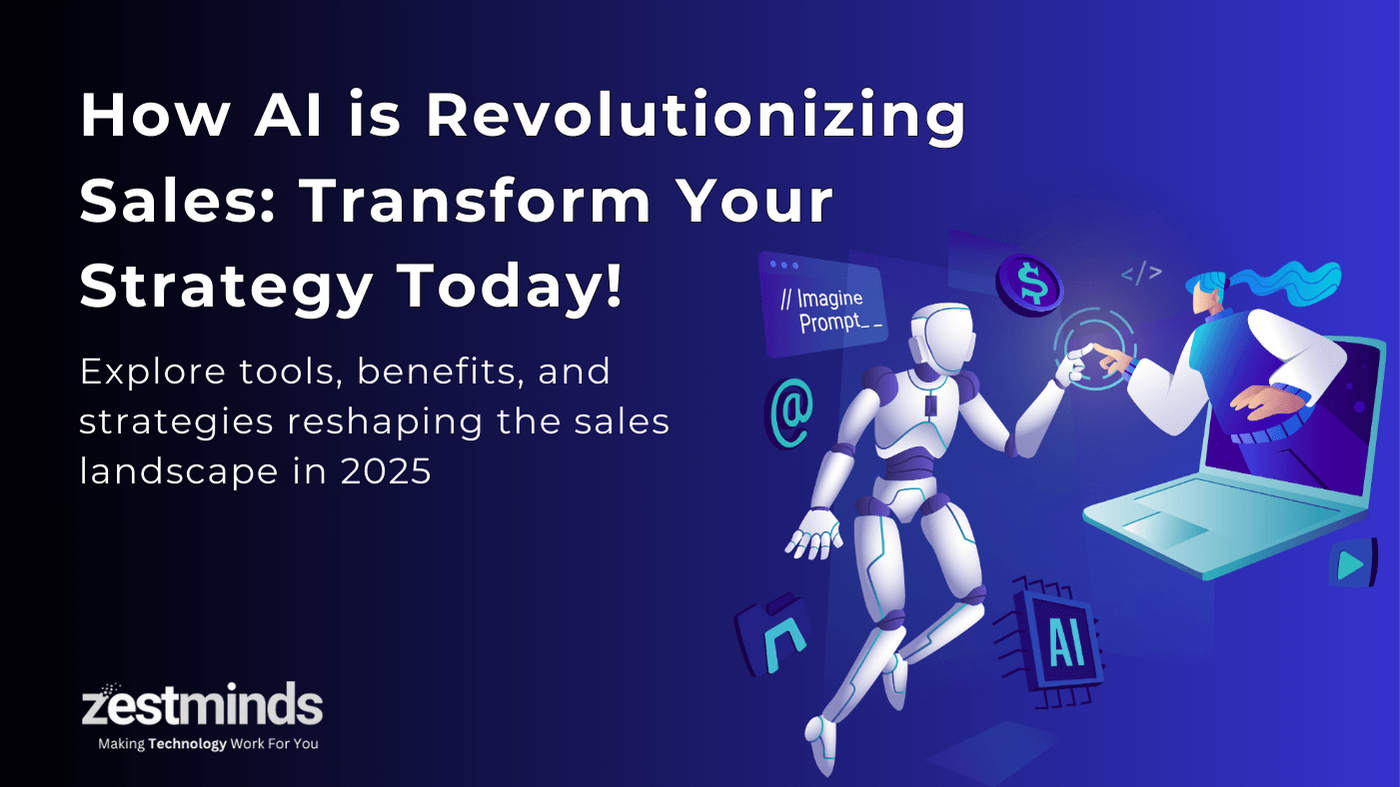
In today’s fast-paced and competitive sales landscape, staying ahead of the curve is paramount for businesses looking to thrive. Artificial Intelligence (AI) has emerged as one of the most transformative tools reshaping the sales domain. By enabling precision in identifying potential leads and enhancing customer interactions, AI empowers sales teams to perform smarter, faster, and more effectively than ever before.
This blog explores how AI is revolutionizing sales, the tools driving this transformation, and strategies businesses can adopt to achieve their goals.
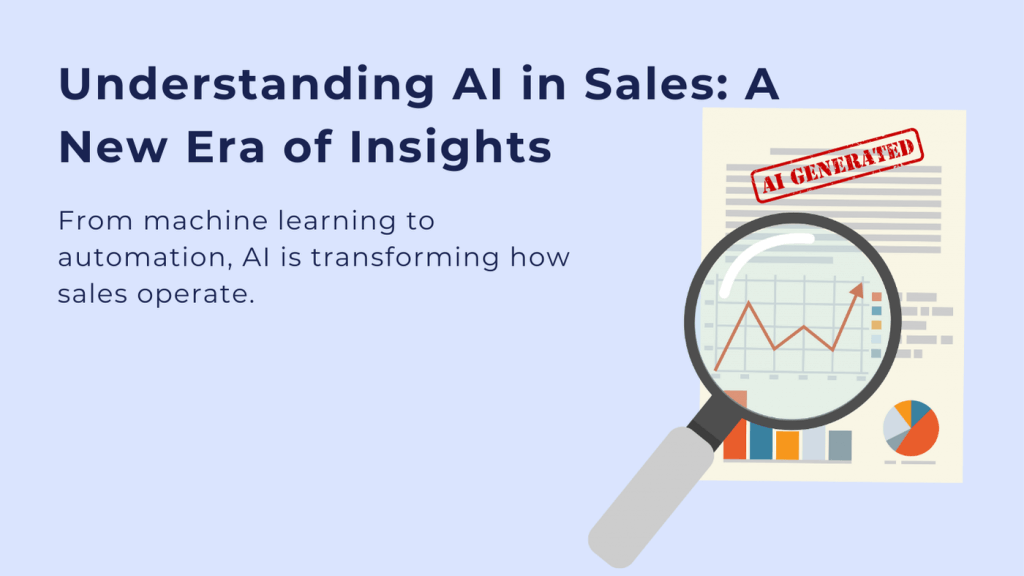
Understanding AI in Sales: A New Frontier
AI in sales leverages machine learning, predictive analytics, and automation tools to optimize various aspects of the sales process. Machine learning analyzes vast datasets to uncover trends and insights, predictive analytics forecasts potential outcomes to aid in decision-making, and automation tools handle repetitive tasks such as follow-ups and data entry, allowing sales teams to focus on strategic activities. By analyzing data and recognizing patterns, AI provides actionable insights that guide sales strategies. Unlike traditional methods, AI dynamically adapts to market changes and customer behaviors.
For example, AI can notify a sales rep about a client’s potential needs before a call or predict the likelihood of closing a deal based on historical data. This proactive approach maximizes opportunities and efficiency.
Why does AI matter in sales?
- Improved lead qualification accuracy.
- Automation of repetitive tasks to boost productivity.
- Tailored insights for personalized customer solutions.

Key Benefits of AI in Sales
1. Enhanced Lead Scoring and Prioritization
AI excels at processing massive datasets to identify leads most likely to convert. Tools like HubSpot’s AI-powered CRM help assign scores to leads based on historical data and behavioral trends, enabling teams to prioritize effectively.
2. Automation of Routine Tasks
AI-powered tools automate mundane tasks like data entry, follow-ups, and meeting scheduling. This allows sales reps to focus on building relationships and closing deals. By eliminating inefficiencies, AI drives measurable productivity improvements.
3. Predictive Analytics for Decision-Making
Predictive analytics is among AI’s most powerful features. For example, a retail business used predictive analytics to identify peak sales periods and allocate resources accordingly, leading to a 20% increase in revenue. By analyzing past performance and customer behaviors, AI forecasts trends, helping businesses prepare in advance.
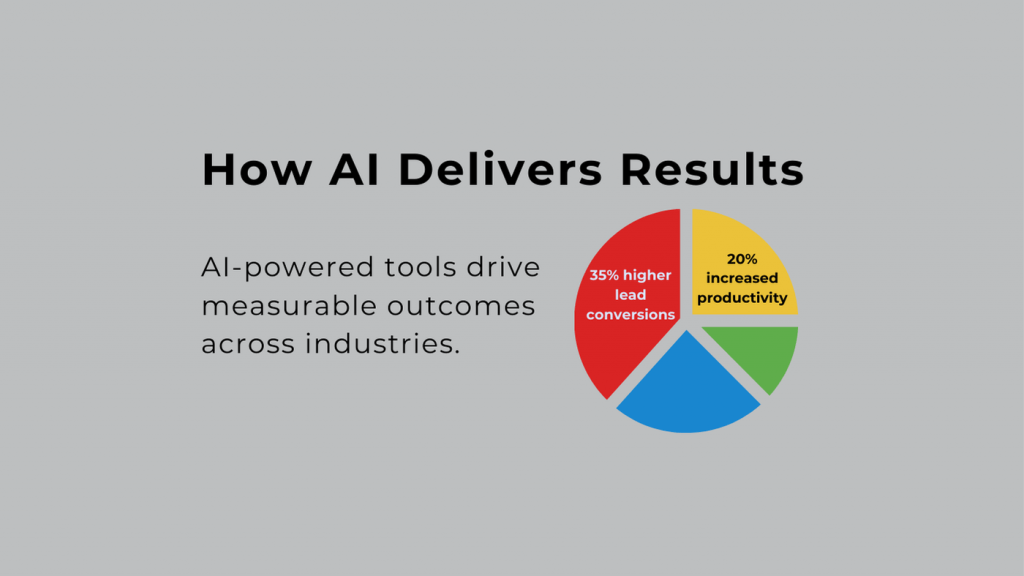
4. Hyper-Personalized Customer Interactions
AI enables businesses to craft highly personalized experiences by analyzing customer preferences and behaviors. From tailored product recommendations to customized email campaigns, AI ensures every interaction feels relevant and impactful.
5. Improved Sales Forecasting
Accurate forecasting helps allocate resources effectively and make informed strategic decisions. AI uses historical data and market insights to predict sales performance, reducing risks and enhancing planning capabilities.
AI Tools Transforming the Sales Process
1. Gong.io
Gong uses conversational intelligence to analyze sales calls and provide actionable insights for improving win rates.
2. Clari
Clari’s AI-driven platform streamlines pipeline management and forecasts sales with unmatched accuracy.
3. Salesforce Einstein
Einstein leverages AI to automate workflows, provide predictive analytics, and recommend next-best actions for sales teams.
4. Chorus.ai
Chorus captures and analyzes sales conversations, delivering data-driven suggestions to refine strategies. Its seamless CRM integration makes it indispensable for improving team performance.
AI in Action: Real-World Applications
Case Study: AI Boosting Lead Conversions by 35%
An e-commerce company integrated an AI chatbot to handle customer queries. This chatbot not only provided instant responses but also identified promising leads by analyzing interaction patterns. Within six months, the company achieved a 35% increase in lead conversions.
Using AI to Shorten Sales Cycles
A SaaS firm adopted AI for predictive analytics and lead scoring. By identifying high-value leads early in the sales cycle, the company reduced the cycle length by 25%, accelerating revenue generation.
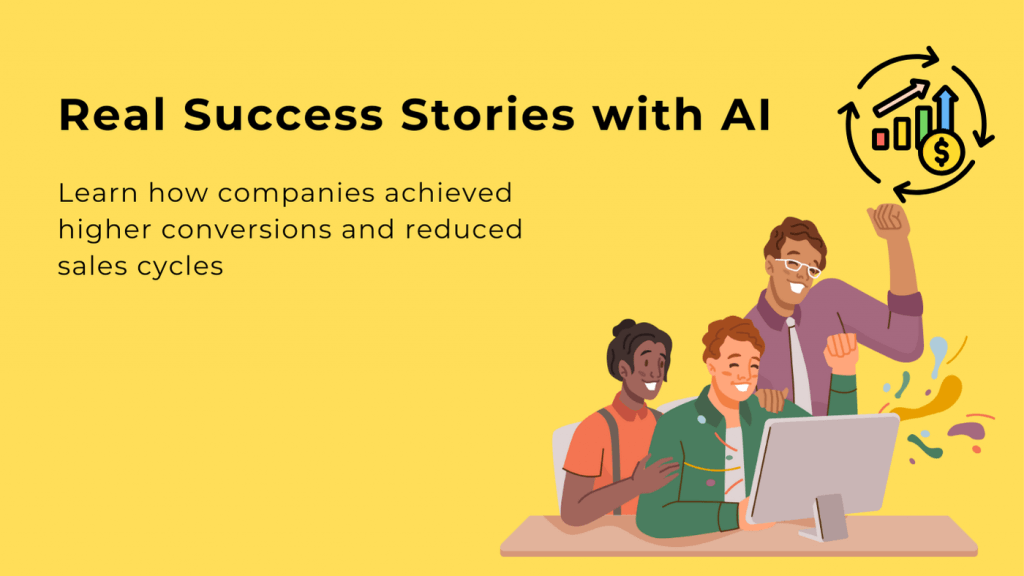
Challenges of Adopting AI in Sales
While AI offers significant benefits, its adoption comes with challenges:
- High Initial Investment: Advanced AI tools can be expensive for small businesses.
- Data Privacy Concerns: Ensuring compliance with regulations like GDPR is critical as reliance on data increases.
- Learning Curve: Sales teams must adapt to new tools, requiring training and support.
Starting small with pilot projects and selecting scalable solutions can help businesses overcome these hurdles. For instance, a pilot project might involve using an AI tool for automating follow-ups in a single sales team. This allows the organization to measure its impact, gather feedback, and make adjustments before scaling the solution across all teams. For guidance, check out our blog on Digital Transformation.
Steps to Implement AI in Your Sales Strategy
- Assess Your Needs: Identify bottlenecks in your sales process that AI can resolve, such as prioritizing leads or automating follow-ups.
- Select the Right Tools: Choose AI tools aligned with your goals. .
- Train Your Team: Equip your sales team with the skills needed to leverage AI tools effectively.
- Monitor Performance: Regularly track AI’s impact on KPIs such as lead conversion rates and customer satisfaction.
- Scale Gradually: Begin with specific use cases and expand adoption as your team gains expertise.
The Future of AI in Sales
AI is not just a tool—it represents a paradigm shift that’s redefining sales processes. Emerging trends like generative AI for personalized pitches, real-time AI-driven sales analytics, and conversational AI for enhanced customer engagement are expected to reshape the sales landscape even further, making it more dynamic and efficient. Businesses that embrace AI now will gain a competitive edge in tomorrow’s marketplace.
Conclusion: Embracing AI for Sales Success
AI has evolved from a luxury to a necessity for modern sales teams. By automating tasks, providing actionable insights, and enabling hyper-personalized customer experiences, AI empowers sales professionals to focus on building relationships and closing deals.
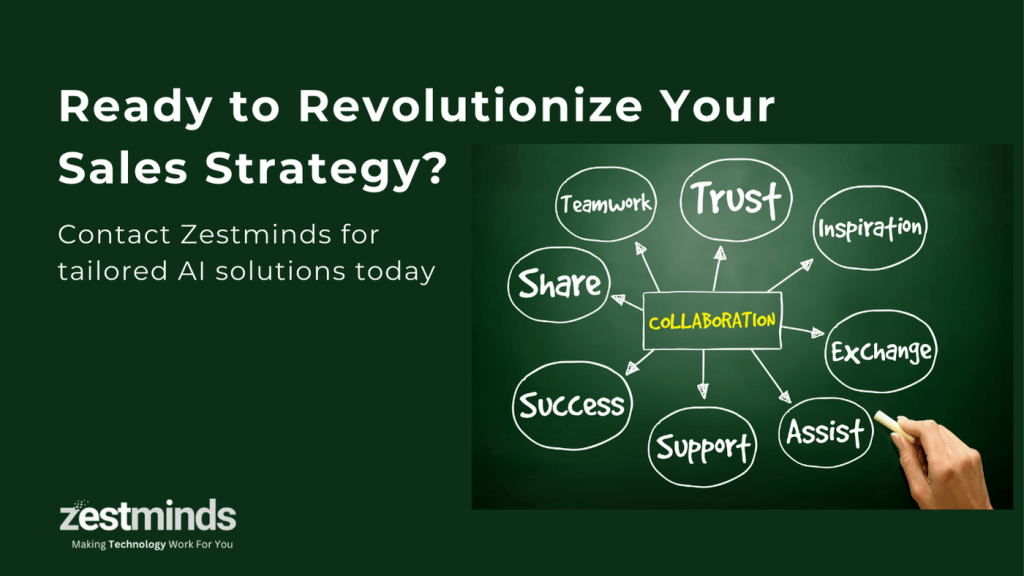
Are you ready to revolutionize your sales strategy? Contact us today to explore tailored AI solutions for your business needs.

Shivam Sharma
About the Author
With over 13 years of experience in software development, I am the Founder, Director, and CTO of Zestminds, an IT agency specializing in custom software solutions, AI innovation, and digital transformation. I lead a team of skilled engineers, helping businesses streamline processes, optimize performance, and achieve growth through scalable web and mobile applications, AI integration, and automation.




